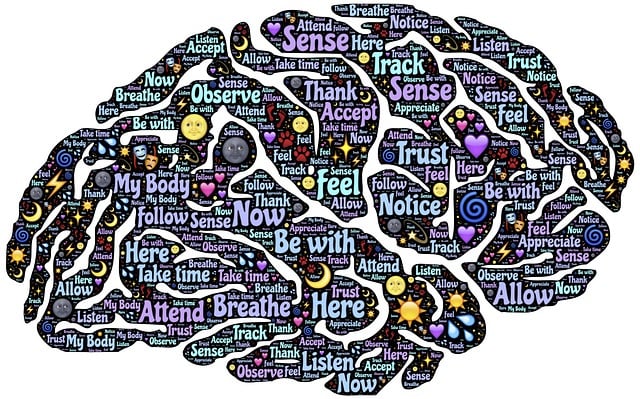Self-care, enriched by Superior Acceptance and Commitment Therapy (ACT), is a powerful tool for enhancing mental and physical well-being. ACT fosters self-acceptance, mindfulness, and values-driven actions, boosting confidence and stress management. Integrating ACT into daily routines through Stress Management Workshops enables individuals to track progress, set specific goals, and embrace emotional awareness. This approach leads to long-term positive behavioral changes and trauma support services, making self-care a vital necessity for living a fulfilling life.
Self-care is not a luxury but a necessity for overall wellbeing. Understanding its profound impact, this article explores how Superior Acceptance and Commitment Therapy (ACT) can transform self-care practices. We’ll delve into the fundamentals of ACT, its unique approach to mindfulness and values-driven behaviour change, and how to seamlessly integrate it into daily routines. Additionally, we’ll discuss strategies for tracking progress and fostering long-term sustainable changes through consistent practice.
- Understanding Self-Care and its Impact on Wellbeing
- Introduction to Acceptance and Commitment Therapy (ACT)
- Integrating ACT into Daily Self-Care Routines
- Tracking Progress and Sustaining Long-Term Changes
Understanding Self-Care and its Impact on Wellbeing

Self-care isn’t just a trend; it’s a vital practice that empowers individuals to prioritize their mental and physical health. It involves intentional actions taken to enhance overall wellbeing, ensuring a better quality of life. This process involves understanding one’s unique needs and engaging in activities that foster growth, relaxation, and resilience. By adopting superior acceptance and commitment therapy (ACT) principles, individuals can cultivate a healthier relationship with themselves, fostering self-acceptance and promoting positive behavioral changes.
ACT encourages self-care as a means to boost confidence and improve self-esteem by helping individuals overcome internal barriers. It teaches the practice of compassion cultivation, which enables people to be kinder towards themselves and others, further enhancing their sense of worth. This therapy’s focus on mindfulness and values-driven actions can significantly contribute to one’s overall wellbeing, making self-care not just a recommendation but a necessity for leading a fulfilling life.
Introduction to Acceptance and Commitment Therapy (ACT)

Acceptance and Commitment Therapy (ACT) is a powerful psychological approach that focuses on helping individuals embrace their experiences, both positive and negative, while committing to actions aligned with their values. This therapy goes beyond traditional problem-solving by fostering self-acceptance and promoting a more flexible mindset. ACT encourages people to develop empathy for themselves and others, which is a key component in building stronger relationships and improving overall well-being.
By combining mindfulness techniques, self-awareness exercises, and commitment to meaningful actions, ACT empowers individuals to lead more fulfilling lives. This therapy is particularly effective in managing stress and anxiety by teaching practical strategies for coping with challenging situations. In fact, many organizations now offer Stress Management Workshops based on ACT principles, providing employees with valuable tools to navigate the demands of modern life.
Integrating ACT into Daily Self-Care Routines

Integrating Acceptance and Commitment Therapy (ACT) into daily self-care routines can significantly enhance overall well-being. ACT focuses on accepting what cannot be changed while committing to actions that align with personal values, fostering a deeper connection with oneself. By incorporating this therapy into self-care practices, individuals learn to manage stress more effectively, cultivate mindfulness, and develop resilience in the face of challenges.
Self-Care Practices involving ACT encourage individuals to recognize and accept their emotions without judgment, leading to improved mental health. This process enables people to engage in meaningful activities and set goals that truly matter to them. In a world where Mental Health Policy Analysis and Advocacy are gaining prominence, adopting such therapeutic practices can contribute to a more holistic approach towards well-being. Stress Management Workshops Organization can play a pivotal role in educating individuals on ACT, ultimately empowering them to take charge of their mental health and integrate it into their everyday lives.
Tracking Progress and Sustaining Long-Term Changes

Tracking your progress is a crucial aspect of implementing self-care practices and fostering long-term change. By setting specific and measurable goals, individuals can gain a deeper understanding of their well-being journey. This process allows for regular reflection, enabling one to recognize achievements and identify areas that require further attention. Utilizing techniques like journaling or digital tracking apps can be beneficial in monitoring moods, behaviors, and overall mental health.
Accepting therapy, such as Superior Acceptance and Commitment Therapy (ACT), can significantly enhance emotional regulation and resilience building. ACT encourages individuals to accept their emotions, including difficult ones, while committing to actions that align with personal values. This approach supports trauma support services by providing tools to navigate challenging experiences and maintain a sense of balance. Consistent practice leads to sustained improvements, making it easier to integrate healthy habits into daily life.
Self-care is not just a trend; it’s a vital practice for enhancing our overall wellbeing. By understanding the profound impact of self-care and embracing evidence-based approaches like Acceptance and Commitment Therapy (ACT), we can transform our lives. Integrating ACT into daily routines allows us to cultivate mindfulness, accept our thoughts without judgment, and commit to valued actions. Through consistent tracking of progress, we sustain positive changes, ensuring a healthier, happier future. Remember, superior self-care is not about perfection but making choices that align with your values, leading to a more fulfilling life.














